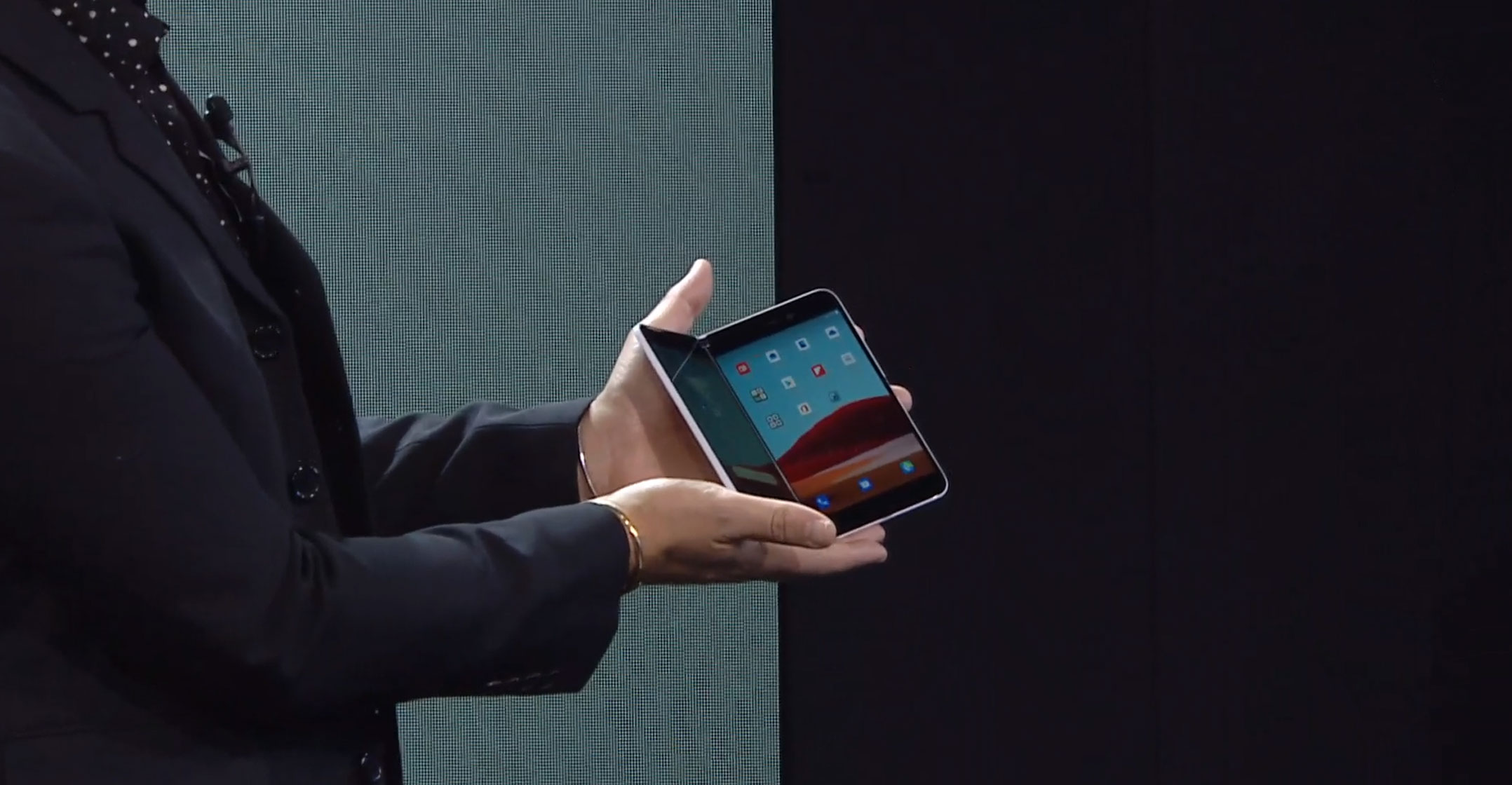
Microsoft is re-entering the smartphone market with a dual-screen foldable handset. The Surface Duo is the tech giant’s first smartphone since the Microsoft Lumia 650 in 2016, when the company appeared to give up on mobile because of intense competition from iOS and Android.
At an event in New York, Microsoft showed off the pocket-friendly product for the first time, although it won’t be available until the Christmas period of 2020. Most surprising is that the device reportedly runs Google’s Android operating system.
The company is working with Google to bring Android apps to the device, coupled with Microsoft’s productivity experiences. Speaking about the device, Panos Panay, chief product officer at Microsoft, said: “It has to fit in your pocket. You will be more productive on two screens.”
The Duo follows a new trend in smartphone design which emerged with other foldables, notably Samsung’s Galaxy Fold and Huawei’s Mate X.
The event showcased several new Surface devices, including a foldable tablet called the Surface Neo running an adapted version of Microsoft’s operating system, known as Windows 10X.
It also will not be available until late next year, but Panay said the company was unveiling the technology early “to bring developers on the journey with us”.
“It’s the device that puts you at the centre and adapts to who you are – I showed you kind of early, but I can’t wait,” he added.
New computers
Elsewhere, Microsoft revealed four major products due for release later this month, including an updated Surface Laptop 3, a Surface Pro 7 and the Surface Pro X, which are all said to feature greater performance and battery while being lighter and thinner.
The most powerful of the bunch, the Pro X, features a rechargeable slim pen that can slot into the type cover.
New Surface EarBuds also made an appearance, marking the latest audio-based product from the company since last year’s Surface Headphones.
The in-ear Buds are able to pair up with Office apps and can add live captions during PowerPoint presentations, although the feature will only be available in the US to begin with.




